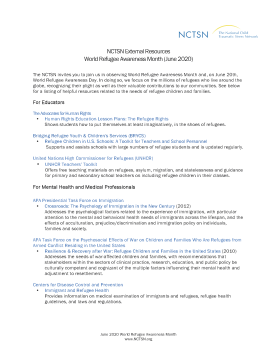
World Refugee Awareness Month External Resources
Provides external resources related to World Refugee Awareness Month.
The following resources on child trauma were developed by the NCTSN. To find a specific topic or resource, enter keywords in the search box, or filter by resource type, trauma type, language, or audience.

Provides external resources related to World Refugee Awareness Month.
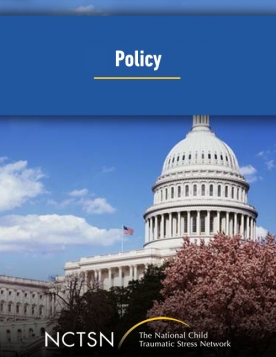
Explores trauma-informed, culturally-responsive strategies for serving separated children who have migrated to the US from countries in Latin America. They will discuss policies and practices relevant to the protection and best interests of unaccompanied and separated immigrant children.
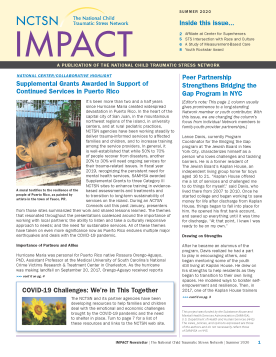
Brings a raft of stories about our ongoing work to help families and children deal with trauma amid the challenges of the COVID-19 pandemic.
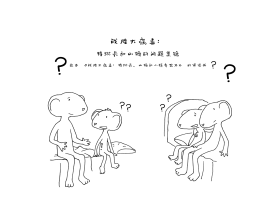
Provides questions that Trinka and Sam have about the big virus and ways to answer those questions.
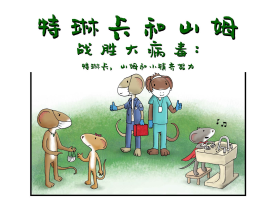
Helps young children and families talk about their experiences and feelings related to COVID-19 and the need to shelter in place. In the story, the coronavirus has spread to Littletown causing changes in everyone's lives.
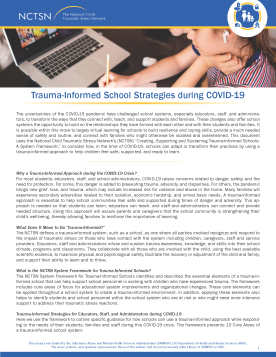
Provides trauma-informed school strategies in response to COVID-19.
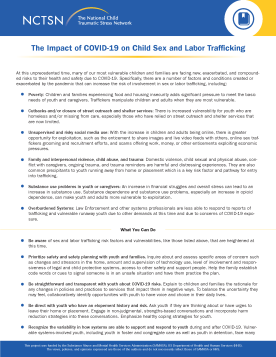
Describes how the impact and consequences of COVID-19 increase the risk of involvement in sex or labor trafficking. This fact sheet offers infromation on what you can do as a provider and how to support yourself.
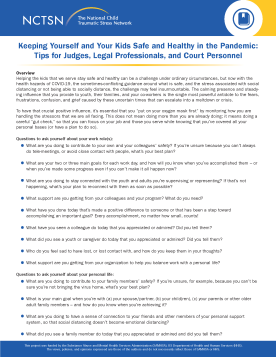
Offers helpful questions about safety that judges, legal professionals, and court personnel can ask themselves regarding their work and their personal lives.
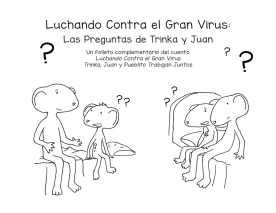
Ayuda a los niños más pequeños y sus familias a hablar sobre sus experiencias y sentimientos relacionados con COVID-19 y la necesidad de permanecer en casa. En el cuento, el coronavirus se ha extendido por todo Littletown, provocando cambios en la vida de todos.
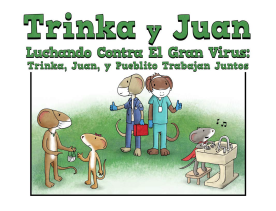
Presenta algunas de las preguntas que tienen Trinka y Sam sobre el gran virus y formas de responderlas. Esta historia acompañante incluye preguntas comunes que los niños puedan tener sobre COVID-19.
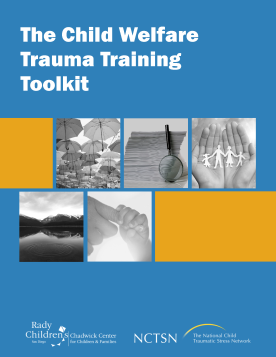
Supports caseworkers, supervisors, and all other levels of the child welfare workforce in implementing trauma-informed knowledge and skills in their daily interactions, professional services and organizational culture. The third edition of the Child Welfare Trauma Training Toolkit (CWTTT) incorp
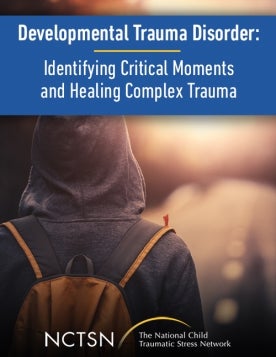
Focuses on meet Penny and her adopted mother, Jan, who are in an emergency session with Dr. Ford. Penny was sent home from school for assaulting another child.